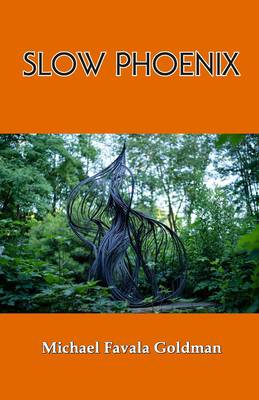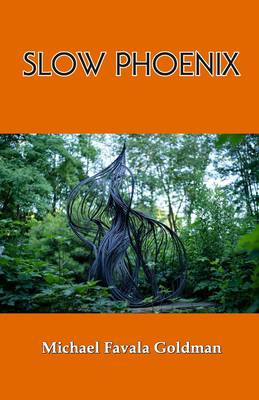
Bedankt voor het vertrouwen het afgelopen jaar! Om jou te bedanken bieden we GRATIS verzending (in België) aan op alles gedurende de hele maand januari.
- Afhalen na 1 uur in een winkel met voorraad
- Gratis thuislevering in België vanaf € 30
- Ruim aanbod met 7 miljoen producten
Bedankt voor het vertrouwen het afgelopen jaar! Om jou te bedanken bieden we GRATIS verzending (in België) aan op alles gedurende de hele maand januari.
- Afhalen na 1 uur in een winkel met voorraad
- Gratis thuislevering in België vanaf € 30
- Ruim aanbod met 7 miljoen producten
Zoeken
Omschrijving
In Slow Phoenix, inspiration is a mutual endeavor. These poems by Michael Favala Goldman draw on his experience as a carpenter, a musician, a gardener, and a parent, but also his devotion to literature and art. For example, the title poem was inspired by the sculpture Phoenix, pictured on the book cover. In Goldman's poems though, mythological rebirth is humbly not expected anytime soon. He writes in Faith, "there is this honest speech/ lying on my tongue/ like milkshake."
Other poems draw inspiration from mundane objects and habits, like an exhaust fan or reading the news. He writes, "over breakfast/ see national policy/ takes up the same space/ as pureed soups and/ the football draft" And yet, in this domestic ambivalence dwells a yearning for a more ambitious experience of life. He writes in Late spring, potting, "Inside I handle dry soil/ individual seeds/ that have lain patiently in their paper/ waiting/ They think spring is coming/ It is all they think of."
The poems of Slow Phoenix explore the intersticial space between contentment and disturbance, whether we are joining the poet in New Jersey, Cameroon, at Devil's Tower, clearing a building lot, or moving his sons out of the house. "The heart's pericardium/ membrane aches like hell if you stretch it/ all the way to Chicago"
In the end, Goldman's humor and care is about taking ourselves by surprise, appreciating the struggles which bring us more awareness, the ability to look at who we have become. "Get up/ go to the door/ and greet your life/ like a cousin/ you haven't seen/ for a long time"
This is a book with incredible variety, which will entertain and gently disturb the reader. The poems, like an able gardener, "show you/ how deep, how close we have to dig."
Other poems draw inspiration from mundane objects and habits, like an exhaust fan or reading the news. He writes, "over breakfast/ see national policy/ takes up the same space/ as pureed soups and/ the football draft" And yet, in this domestic ambivalence dwells a yearning for a more ambitious experience of life. He writes in Late spring, potting, "Inside I handle dry soil/ individual seeds/ that have lain patiently in their paper/ waiting/ They think spring is coming/ It is all they think of."
The poems of Slow Phoenix explore the intersticial space between contentment and disturbance, whether we are joining the poet in New Jersey, Cameroon, at Devil's Tower, clearing a building lot, or moving his sons out of the house. "The heart's pericardium/ membrane aches like hell if you stretch it/ all the way to Chicago"
In the end, Goldman's humor and care is about taking ourselves by surprise, appreciating the struggles which bring us more awareness, the ability to look at who we have become. "Get up/ go to the door/ and greet your life/ like a cousin/ you haven't seen/ for a long time"
This is a book with incredible variety, which will entertain and gently disturb the reader. The poems, like an able gardener, "show you/ how deep, how close we have to dig."
Specificaties
Betrokkenen
- Auteur(s):
- Uitgeverij:
Inhoud
- Aantal bladzijden:
- 100
- Taal:
- Engels
Eigenschappen
- Productcode (EAN):
- 9788182537552
- Verschijningsdatum:
- 4/07/2021
- Uitvoering:
- Paperback
- Formaat:
- Trade paperback (VS)
- Afmetingen:
- 140 mm x 216 mm
- Gewicht:
- 136 g

Alleen bij Standaard Boekhandel
+ 52 punten op je klantenkaart van Standaard Boekhandel
Beoordelingen
We publiceren alleen reviews die voldoen aan de voorwaarden voor reviews. Bekijk onze voorwaarden voor reviews.









